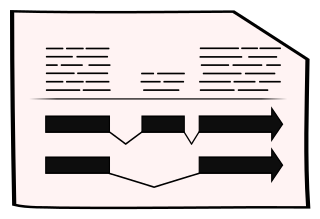Globodera rostochiensis
BioProject PRJNA695196 | Data Source Wageningen University and Research | Taxonomy ID 31243
About Globodera rostochiensis
Globodera rostochiensis, commonly known as the golden nematode, is a plant pathogenic nematode. It infects plants of the Solanaceae family, such as potatoes and tomatoes.
There is 1 alternative strain from this genome project for Globodera rostochiensis available in WormBase ParaSite: L22
There is 1 alternative genome project for Globodera rostochiensis available in WormBase ParaSite: PRJEB13504
Genome Assembly & Annotation
Assembly
The genome assembly was produced by the Laboratory of Nematology, Wageningen University & Research, Wageningen, The Netherlands. The assembly uses PacBio SMRT sequencing complemented by 2 × 250 bp Illumina NovaSeq short-read sequencing. PacBio reads were assembled with wtdgb2 v2.3. Unmerged haplotigs were filtered from the assembly using Purge Haplotigs v1.0.4. The assembly was then tested for contamination using the blobtools pipeline v.1.0.1, while scaffolding performed with SSPACE-Longread. The Illumina reads were used to polish the assembly with Arrow v2.3.3 and Pilon. All scripts used for the generation of the genome assemblies are available here.
Annotation
Gene models were provided by Laboratory of Nematology, Wageningen University & Research, Wageningen, The Netherlands. Genes were predicted using the BRAKER pipeline. The prediction of gene models was aided by RNAseq datasets of different life stages of G. rostochiensis. All scripts used for the generation of the genome annotation are available here.
Downloads
Tools
Key Publications
- van Steenbrugge JJM, van den Elsen S, Holterman M, Sterken MG, Thorpe P, Goverse A, Smant G, Helder J. Comparative genomics of two inbred lines of the potato cyst nematode Globodera rostochiensis reveals disparate effector family-specific diversification patterns. BMC Genomics, 2021;22(1):611
Navigation
Assembly Statistics
| Assembly | WUR_GloGros_L19, GCA_018350325.1 |
| Strain | L19 |
| Database Version | WBPS19 |
| Genome Size | 92,682,755 |
| Data Source | Wageningen University and Research |
| Annotation Version | 2021-11-WormBase |
Gene counts
| Coding genes | 17,856 |
| Gene transcripts | 21,398 |
Learn more about this widget in our help section
This widget has been derived from the assembly-stats code developed by the Lepbase project at the University of Edinburgh











